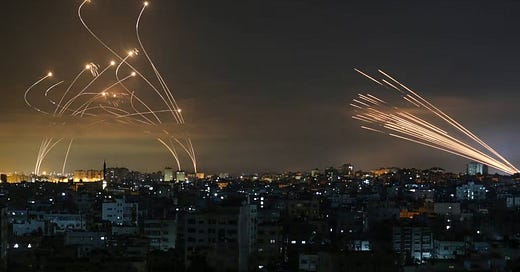Over the weekend, United States Central Command (CENTCOM) Commander General Erik Michael Kurrila visited Israel to ensure the Israeli Defense Forces (IDF) had the support they needed as the region braced for Iran’s expected retaliatory strike for Israel’s killing of Hezbollah Commander Fuad Shakur in Lebanon and Hamas’ political chief Ismail Haniyeh in …
Keep reading with a 7-day free trial
Subscribe to Grumpy Combat Veteran to keep reading this post and get 7 days of free access to the full post archives.


